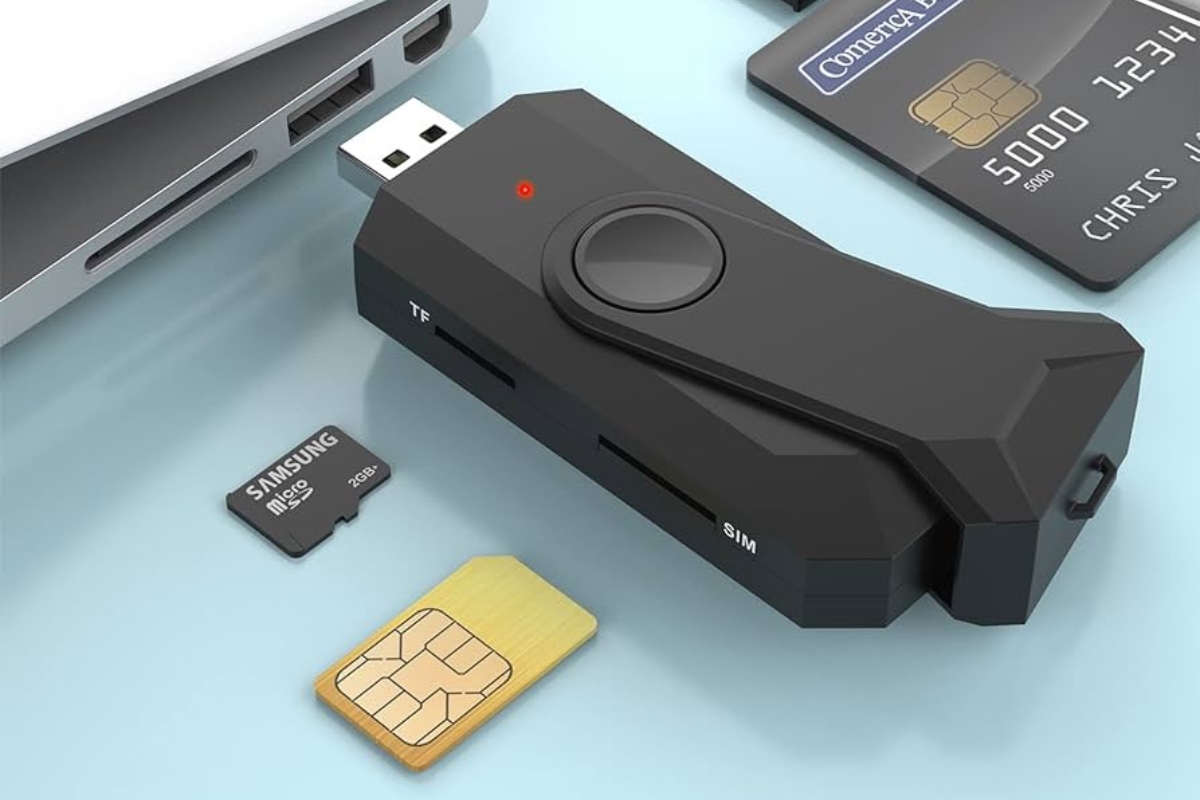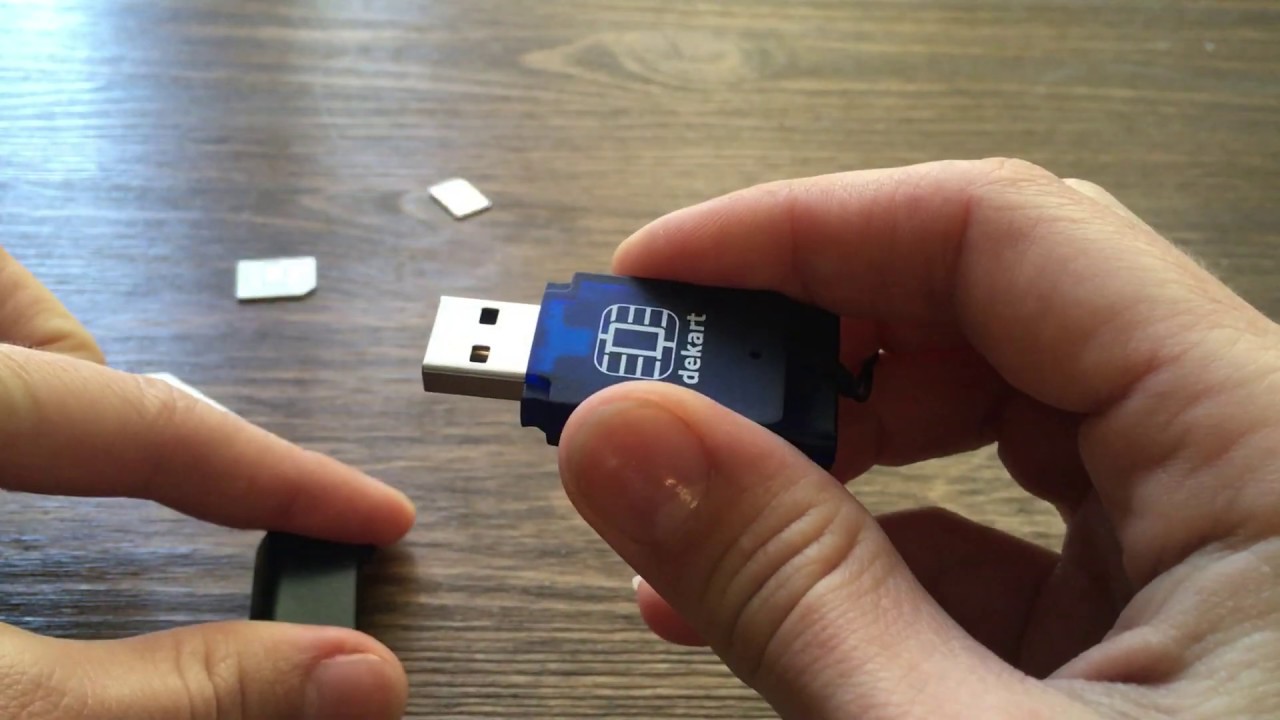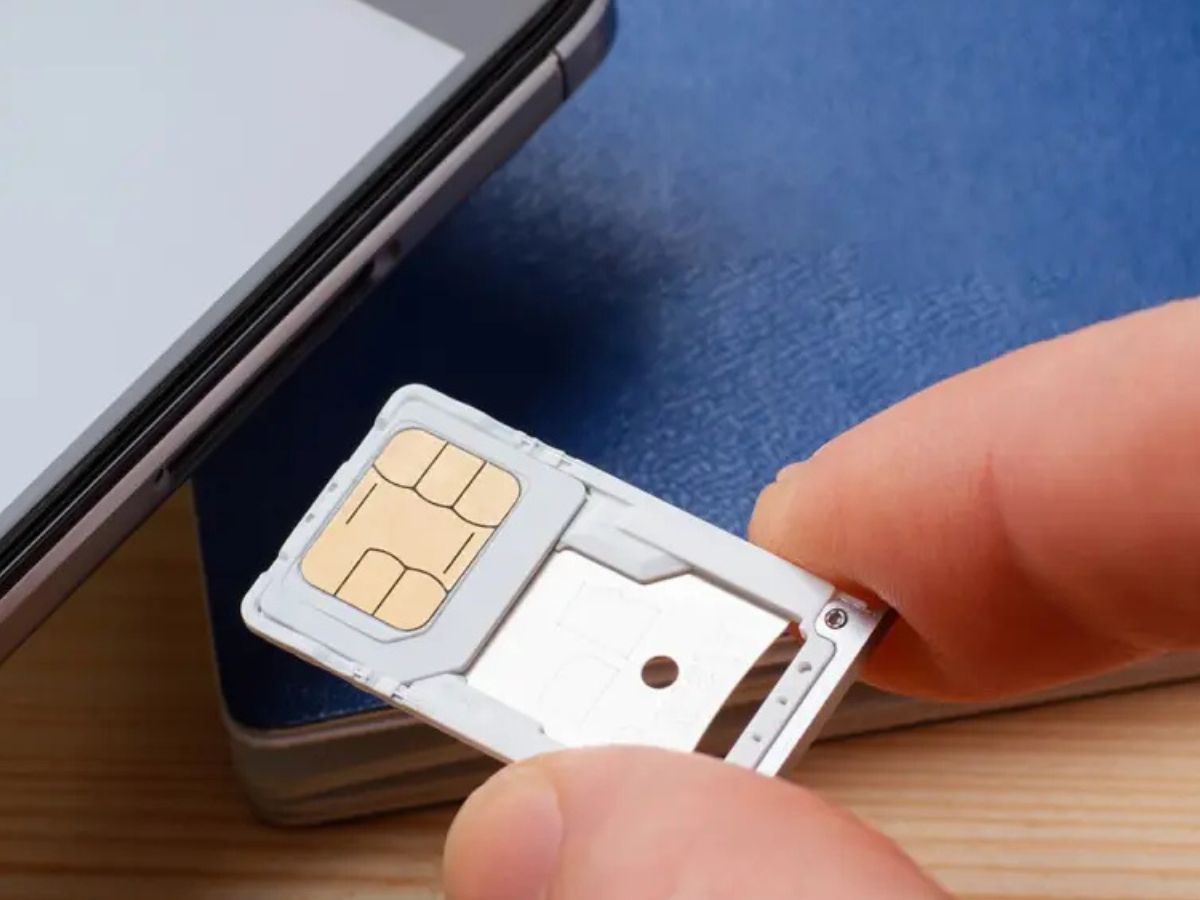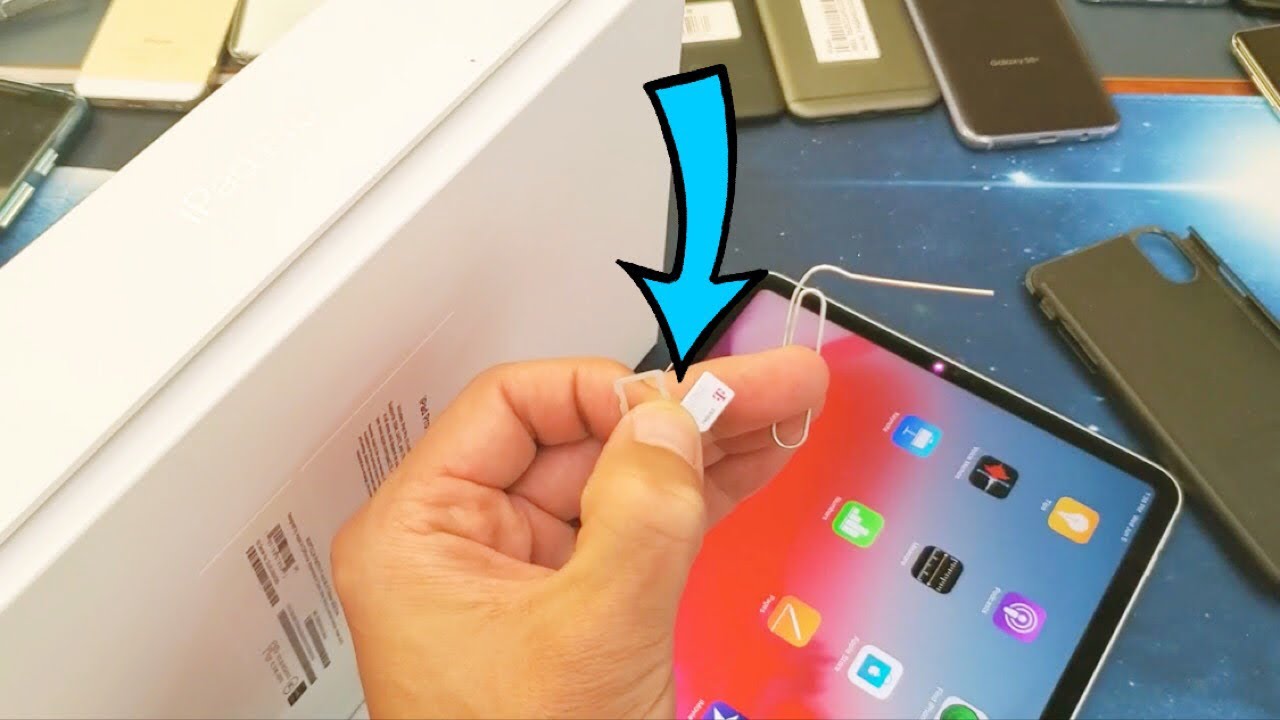Introduction
In the fast-paced world of mobile devices, where communication and connectivity are paramount, SIM card messages play a crucial role in ensuring seamless and secure operations. These messages, often overlooked by users, serve as a vital link between the mobile network operator and the subscriber's device. Understanding the purpose and types of SIM card messages is essential for optimizing the functionality and security of mobile devices.
The unassuming nature of SIM card messages belies their significance in the realm of mobile communications. From activation and deactivation notifications to important updates and security alerts, these messages provide essential information that directly impacts the user's mobile experience. While often perceived as routine notifications, SIM card messages are integral to the smooth functioning of mobile devices, ensuring that users stay informed about their network status and account activities.
As we delve deeper into the world of SIM card messages, it becomes evident that these seemingly innocuous notifications are the unsung heroes of mobile connectivity. By shedding light on the intricacies of these messages, users can gain a deeper appreciation for their role in maintaining the integrity and security of their mobile communications. Let's embark on a journey to unravel the significance and purpose of SIM card messages, shedding light on their diverse types and the ways in which they contribute to the seamless operation of mobile devices.
What are SIM Card Messages?
SIM card messages, also known as SIM toolkit messages or network messages, are notifications and alerts sent by the mobile network operator to the subscriber's SIM card. These messages serve as a means of communication between the network provider and the user's mobile device. Unlike regular SMS or MMS messages, SIM card messages are not directly initiated by the user but are instead transmitted by the network operator to convey important information and updates.
These messages encompass a wide range of notifications, including network updates, promotional offers, account status alerts, roaming notifications, and security-related messages. They are designed to provide subscribers with essential information regarding their network connectivity, account activities, and relevant updates from the mobile operator.
One common type of SIM card message is the activation or deactivation notification, which informs users about the status of their SIM card and its associated services. Additionally, network configuration messages are sent to ensure that the user's device is properly set up to access the operator's services and features.
Moreover, SIM card messages often include security alerts, such as notifications about unauthorized access attempts, SIM card changes, or potential security vulnerabilities. These messages play a critical role in keeping subscribers informed about the security of their mobile accounts and devices.
In some cases, SIM card messages may also contain promotional offers, service upgrades, or reminders about subscription renewals. While these messages are intended to inform users about available services and offers, they are distinct from marketing messages and are directly related to the subscriber's account and network status.
It's important to note that SIM card messages are distinct from regular text messages and are typically stored in a separate inbox within the device's messaging app. The content and format of these messages may vary depending on the mobile network operator and the specific information being conveyed.
Overall, SIM card messages serve as a vital communication channel between mobile network operators and subscribers, delivering essential updates, notifications, and security alerts directly to the user's SIM card. Understanding the nature and purpose of these messages is essential for maintaining a secure and well-informed mobile experience.
Types of SIM Card Messages
SIM card messages encompass a diverse array of notifications and alerts that are instrumental in facilitating seamless communication between mobile network operators and subscribers. Understanding the various types of SIM card messages is essential for comprehending the breadth of information and updates that are relayed to users through this channel. Here are the key types of SIM card messages:
-
Activation and Deactivation Notifications: These messages inform users about the status of their SIM card and associated services. Upon activation, subscribers receive a notification confirming the successful activation of their SIM card and the availability of network services. Similarly, deactivation notifications are sent when a subscriber's services are suspended or deactivated, providing crucial information about the status of their mobile connectivity.
-
Network Configuration Messages: Network operators send these messages to ensure that subscribers' devices are properly configured to access the operator's services and features. These messages may include settings for internet access, multimedia messaging, and other network-specific configurations, ensuring that users can seamlessly utilize the operator's services.
-
Security Alerts: One of the most critical types of SIM card messages, security alerts notify users about potential security threats, unauthorized access attempts, SIM card changes, and other security-related incidents. These alerts play a pivotal role in keeping subscribers informed about the security of their mobile accounts and devices, empowering them to take necessary precautions to safeguard their personal information and communication channels.
-
Roaming Notifications: When subscribers travel to a different country or region and connect to a foreign network, they may receive roaming notifications through SIM card messages. These notifications provide information about the associated costs, network availability, and relevant details to ensure that users are aware of the implications of using their mobile devices while roaming.
-
Promotional Offers and Service Updates: In addition to essential notifications, SIM card messages may also include promotional offers, service upgrades, and reminders about subscription renewals. These messages inform users about available services, special offers, and updates related to their subscriptions, providing valuable insights into the operator's offerings and enabling subscribers to make informed decisions about their mobile services.
Understanding the diverse types of SIM card messages underscores their multifaceted role in delivering essential information, updates, and security alerts to mobile subscribers. By recognizing the significance of each message type, users can stay informed about their network status, account activities, and relevant updates from their mobile operators.
Purpose of SIM Card Messages
SIM card messages serve a multifaceted purpose, playing a pivotal role in ensuring the seamless operation, security, and informed usage of mobile devices. These messages are designed to fulfill several essential functions that directly impact the user's mobile experience and connectivity. Understanding the distinct purposes of SIM card messages provides valuable insights into their significance in maintaining the integrity and functionality of mobile communications.
1. Information Dissemination
One of the primary purposes of SIM card messages is to disseminate essential information to subscribers. These messages convey critical updates, such as activation and deactivation notifications, network configuration details, and roaming alerts, ensuring that users are well-informed about the status of their mobile services and connectivity. By delivering pertinent information directly to the user's SIM card, these messages enable subscribers to stay abreast of important developments related to their network accounts and services.
2. Security Notifications
Ensuring the security of mobile communications is a fundamental aspect of SIM card messages. Security alerts sent through these messages notify users about unauthorized access attempts, SIM card changes, and potential security vulnerabilities. By promptly receiving these notifications, subscribers can take proactive measures to safeguard their devices and personal information, thereby enhancing the overall security of their mobile communications.
3. Service Updates and Offers
SIM card messages also serve as a conduit for communicating service updates, promotional offers, and subscription reminders to users. These messages inform subscribers about available services, upgrades, and special offers, empowering them to make informed decisions about their mobile subscriptions and take advantage of relevant promotions. By delivering these updates directly to the user's SIM card, mobile operators ensure that subscribers are well-informed about the latest offerings and opportunities to optimize their mobile experience.
4. Network Configuration and Management
Network configuration messages transmitted through SIM card messages play a crucial role in ensuring that subscribers' devices are properly configured to access the operator's services and features. These messages provide the necessary settings for internet access, multimedia messaging, and other network-specific configurations, facilitating a seamless and optimized user experience.
5. Regulatory Compliance and Notifications
In some cases, SIM card messages are utilized to convey regulatory compliance information and notifications to subscribers. These messages may include updates related to telecom regulations, privacy policies, and other legal requirements, ensuring that users are informed about pertinent regulatory matters that impact their mobile services and usage.
By fulfilling these diverse purposes, SIM card messages contribute to the overall functionality, security, and user awareness within the mobile communications ecosystem. Subscribers benefit from the timely delivery of essential information, security alerts, and service updates, empowering them to make informed decisions and maintain a secure and well-informed mobile experience.
This comprehensive understanding of the purpose of SIM card messages underscores their integral role in facilitating effective communication between mobile network operators and subscribers, ultimately enhancing the overall mobile user experience.
How to Manage SIM Card Messages
Managing SIM card messages is essential for staying organized, informed, and secure within the mobile communications environment. While these messages serve as valuable sources of information and updates, effectively managing them can contribute to a seamless and optimized user experience. Here are practical strategies for managing SIM card messages:
1. Regular Review and Action
Regularly reviewing SIM card messages ensures that important notifications, security alerts, and service updates are promptly acknowledged and addressed. By routinely checking the SIM card message inbox, users can stay informed about their network status, account activities, and relevant updates from their mobile operators. Actioning security alerts and necessary updates in a timely manner is crucial for maintaining the security and integrity of mobile communications.
2. Organize by Category
Organizing SIM card messages based on their categories, such as activation notifications, security alerts, promotional offers, and network updates, can streamline the management process. Creating distinct folders or labels within the messaging app allows users to categorize and prioritize messages according to their relevance and urgency. This approach facilitates efficient retrieval of specific information and enables users to proactively address critical notifications.
3. Utilize Archive and Delete Functions
Leveraging the archive and delete functions within the messaging app helps declutter the SIM card message inbox. Archiving important notifications ensures that they are accessible for future reference, while deleting obsolete or irrelevant messages prevents the inbox from becoming overcrowded. This practice promotes a tidy and organized message repository, allowing users to focus on pertinent updates and alerts.
4. Stay Informed About Regulatory Updates
Remaining informed about regulatory updates and compliance notifications conveyed through SIM card messages is crucial for understanding the legal and policy-related aspects of mobile communications. Users should pay attention to messages pertaining to privacy policies, telecom regulations, and other legal requirements, ensuring that they are aware of the evolving regulatory landscape that impacts their mobile services.
5. Optimize Security Settings
Optimizing security settings on the mobile device, including SIM card security features and notification preferences, enhances the management of SIM card messages. By configuring security settings to receive alerts for unauthorized access attempts, SIM card changes, and other security-related events, users can proactively monitor and respond to potential security threats.
Effectively managing SIM card messages empowers users to stay informed, organized, and secure within the mobile communications ecosystem. By implementing these strategies, individuals can optimize their interaction with SIM card messages, ensuring that they derive maximum value from the essential information, updates, and security alerts delivered through this communication channel.
Conclusion
In conclusion, the often overlooked SIM card messages are revealed to be integral components of the mobile communications landscape, serving as vital conduits for essential information, security alerts, and service updates. Through their diverse types and multifaceted purposes, SIM card messages play a pivotal role in ensuring the seamless operation, security, and informed usage of mobile devices.
By understanding the distinct types of SIM card messages, including activation and deactivation notifications, network configuration messages, security alerts, roaming notifications, and promotional offers, users gain valuable insights into the breadth of information and updates relayed through this channel. These messages not only provide critical updates about network connectivity and account activities but also empower subscribers to make informed decisions about their mobile subscriptions and security measures.
The multifaceted purposes of SIM card messages, encompassing information dissemination, security notifications, service updates, network configuration, and regulatory compliance, underscore their significance in facilitating effective communication between mobile network operators and subscribers. These messages contribute to the overall functionality, security, and user awareness within the mobile communications ecosystem, ultimately enhancing the overall mobile user experience.
Effective management of SIM card messages, including regular review and action, organization by category, utilization of archive and delete functions, staying informed about regulatory updates, and optimizing security settings, enables users to stay informed, organized, and secure within the mobile communications environment. By implementing these strategies, individuals can optimize their interaction with SIM card messages, ensuring that they derive maximum value from the essential information, updates, and security alerts delivered through this communication channel.
In essence, the significance of SIM card messages transcends their seemingly routine nature, as they serve as indispensable tools for maintaining the integrity, security, and functionality of mobile communications. By recognizing the pivotal role of SIM card messages and adopting effective management practices, users can harness the full potential of these messages to enhance their mobile experience and stay informed about the dynamic landscape of mobile connectivity.

























